The entire solar energy industry was holding its breath! For weeks, a rumour circulated that Bboxx, the British off-grid service provider, is about to buy Ghana’s cleantech PEG Africa. According to reports in the specialist press that have been denied by both companies, the deal is said to be worth around $200m.
This is an unusually high figure for this sector’s type of operation. At the beginning of May, the US company Sun King, which supplies solar kits for domestic use, had already achieved another record by completing a $260m round of financing to accelerate its development and deploy its activities in Asia and especially Africa.
From Egypt to South Africa, Morocco, Senegal, Burkina Faso, Togo and Kenya, the solar sector is booming. Grid-connected solar PV projects and off-grid systems are sprouting up in clusters on the continent, where the sun is almost inexhaustible.
For instance, even though Morocco has a mixed record due to the complex management regarding the gigantic Noor Ouarzazate solar project (580 MW), the Moroccan Agency for Sustainable Energy (Masen) still hopes that 52% of its energy mix will be made up of renewable energy by 2030.
To achieve this, seven concessions have been released to four independent power producers (IPPs) under the Noor PV II programme. Morocco’s Taqa, France’s Voltalia, UAE’s Amea Power and Enel Green Power, a subsidiary of the Italian giant Enel, will be tasked with developing 333 MW of solar photovoltaic capacity.
Strong growth expectations
To mark their territory, Germany’s Siemens Financial Services (SFS) and China’s Huawei Digital Power Technologies have opted for strategic partnerships with a clear objective: to develop a portfolio of 1,000 megawatts of solar energy and smart infrastructure. The former has joined forces with Saudi Arabia’s Desert Technologies in a joint venture called Capton Energy, which aims to acquire and develop solar power plants in Africa and Asia. The second has chosen Meinergy, one of West Africa’s leaders in photovoltaics, to provide Ghana with megaprojects that have 500 MWh of electricity storage capacity, an added bonus.
In addition, “a number of private initiatives, led by players such as Meridiam and impact fund manager Camco, are also helping to accelerate the process and bring more megawatts onto the continent“, says Christopher Knowles, an independent financial investment advisor who has worked with the European Investment Bank (EIB) and Meridiam Infrastructure Africa Fund (MIAF).
“Today, leading investors are betting on the sector because of the strong growth forecasts and reliable returns. Solar has become one of the most cost-competitive and fastest-growing energies in the world,” says Rim Berahab, an economist and renewable energy expert at the Policy Centre for the New South in Rabat. Oudou Nsangou – head of Bboxx EDF Togo, the result of a merger between the British supplier of new generation solar kits and the French company specialising in “low carbon” energy – is optimistic. He says: “Solar energy is the energy of the future and is the solution best suited to the African context and local reality.”
Institutional excitement
Together with wind power, it dominated new renewable energy capacity worldwide in 2021 (88%). In its ‘Renewable Capacity Statistics 2022’ report, which was released in April, the International Renewable Energy Agency (IRENA) notes a 3.9% increase in Africa, where about half of the total population (548 million people) did not have access to electricity in 2018, according to the World Bank.
In the current context, IRENA is betting on clean energy – led by solar energy, which has the greatest potential – to account for nearly 67% of electricity production in sub-Saharan Africa by 2030.
The article continues below
Free download
Get your free PDF: Top 200 banks 2019
The race to transform
Complete the form and download, for free, the highlights from The Africa Report’s Exclusive Ranking of Africa’s top 200 banks from last year. Get your free PDF by completing the following form
Thus, the expected growth in energy demand combined with the intensification of decarbonisation efforts at the global level is expected to stimulate the development of renewable energies, particularly solar energy, especially as technological progress continues to drive down the cost of this energy. “It is a low-risk investment, backed by assets that offer predictable long-term returns in the form of power purchase agreements,” says Rim Berahab, our green energy specialist. Besides the desire to meet the continent’s electricity needs, investors are attracted by “these projects’ profitability, which is much higher, even double that observed in other global markets”, says Christopher Knowles, an independent financial investment advisor.
However, besides the enthusiasm of entrepreneurs for this solar manna, which is still very little exploited on the continent, there is also the commitment demonstrated by development financing institutions. The International Finance Corporation (IFC), a subsidiary of the World Bank and responsible for financing the private sector, has set up a technical and financial mechanism for governments and investors.
This solution, which rapidly develops large-scale solar power plants at a lower cost, is called Scaling Solar. In Senegal, two solar power plants with a capacity of 35 and 25 MW were created at the end of 2020 thanks to this initiative. Two more plants, also with a combined capacity of 60 MW, are currently under construction in Côte d’Ivoire. With tailored documentation, pre-approved financing and guarantee instruments, this turnkey solution is also being used in Zambia, Togo, Niger, Madagascar and Mali.
A good omen for the future
Confirming that multilateral institutions are mobilising in favour of clean energy, in early May, the UN announced a $600bn plan to accelerate the transition to renewables and ensure access to clean electrification and cooking in the least developed countries, particularly in Africa, by 2025. The African Development Bank (AfDB) is also committed to supporting the continent’s energy transition. The latest project that the pan-African institution has been supporting is Desert to Power, a $380m project to make the Sahel region the world’s largest solar production area by mobilising 10,000 MW of installed capacity.
This increase in funding supported by multilateral donors, notably the World Bank, is “of paramount importance” for the development of solar projects in Africa, says Nsangou. “In view of the current economic context, which prevents African states from launching large-scale projects, this dynamic is a good omen, because it is essential to have financial resources,” says Bboxx EDF Togo’s managing director, who believes that these investments make it possible to develop the solar industry and to respond not only to the continent’s electrification needs, but also the climate emergency.
However, in order to meet these challenges and accelerate the transition to clean energy, “major reforms are needed to improve the institutional and regulatory framework” of this sector, concludes Rim Berahab, an economist and expert in renewable energy.

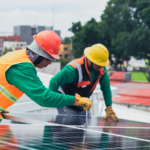
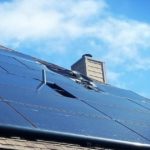

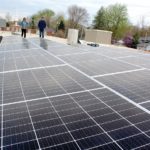
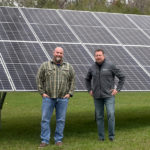
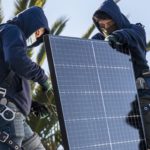
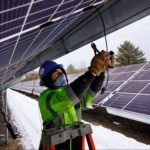
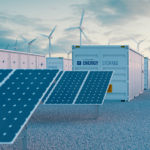
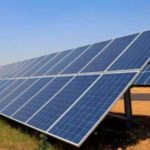
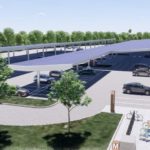

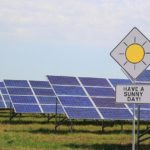
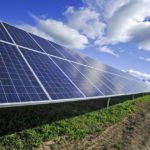

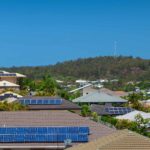
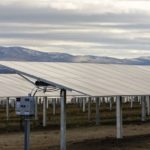




Recent Comments